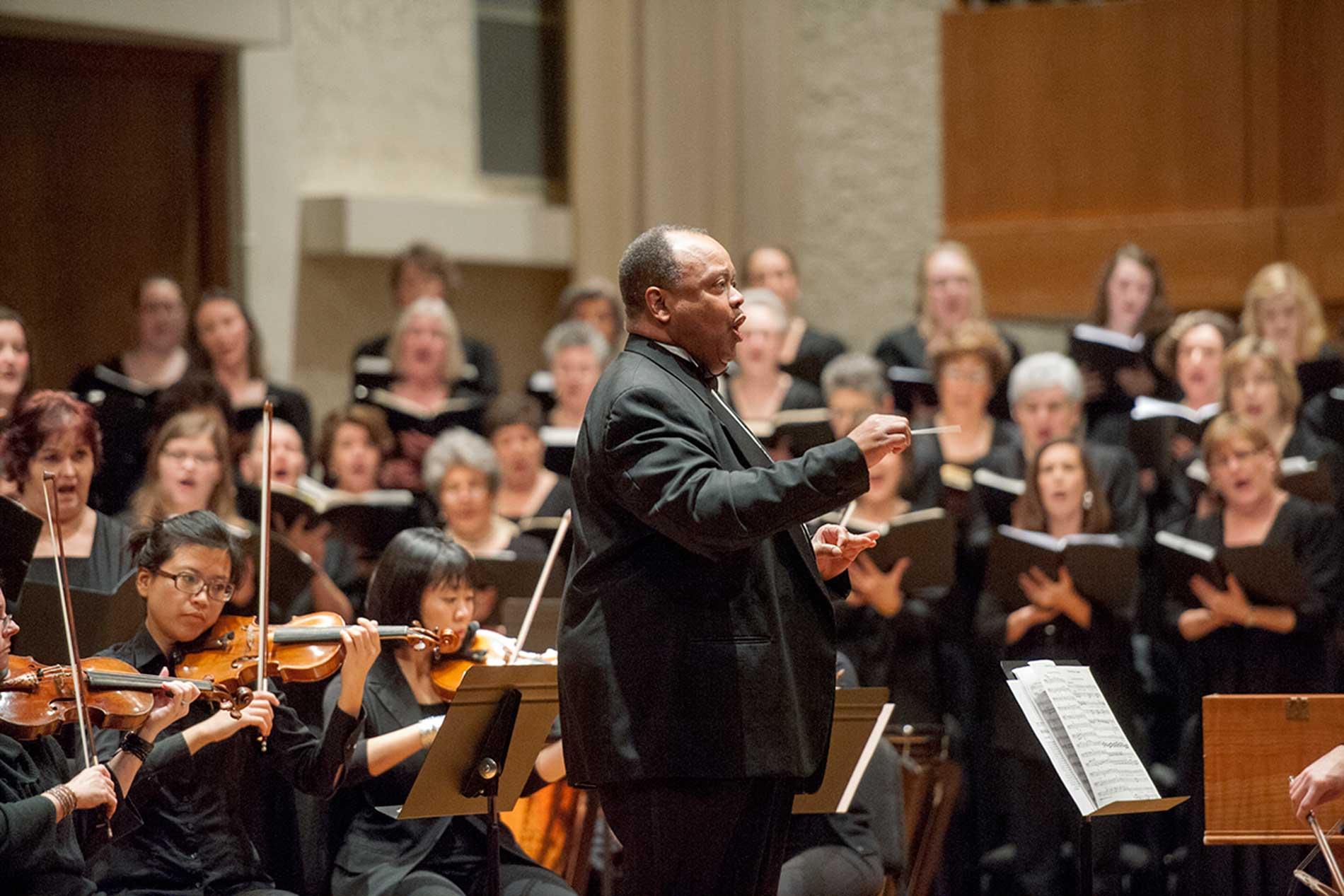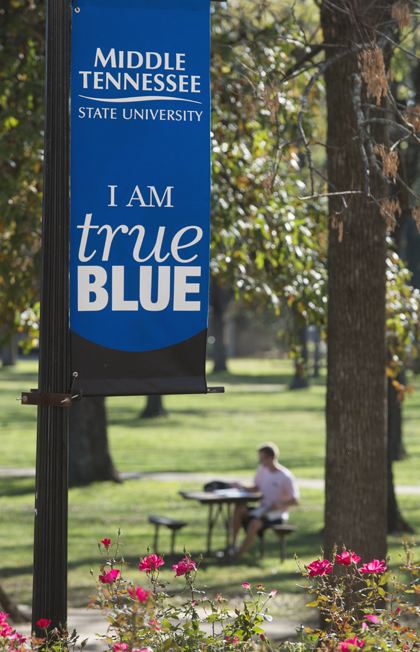
Music
Discover your musical passion and choose from specializations like Collaborative Piano, Jazz Studies, and more.
Music, M.M.
The School of Music offers a Master of Music degree with the following specializations:
Music, Collaborative Piano Specialization, M.M. Music, Jazz Studies Specialization, M.M. Music, Music Composition Specialization, M.M. Music, Music Education Specialization, M.M. Music, Musicology Specialization, M.M. Music, Performance Specialization, M.M.
Please see the Information section below for more information.
Related Media


Collaborative Piano Specialization
The Master of Music degree program with a collaborative piano specialization is an advanced course of study for musicians who hold a Bachelor's degree in music and have a passion for collaborating with instrumental and vocal musicians.
Students will study and perform literature from the instrumental and vocal/operatic repertories, participate in large ensembles such as the MTSU Orchestra and Wind Ensemble, and further their knowledge and understanding of vocal coaching and chamber music literature. Graduates of this program have continued on to pursue advanced degrees and/or careers in instrumental and vocal/choral accompanying and chamber music, professional studio recording, vocal coaching, and private teaching. Graduate teaching assistantship opportunities are available to qualified students.
Conducting Specialization
The Master of Music degree program with a conducting specialization is an advanced course of study for musicians who hold a bachelor's degree and seek advanced instruction in choral or orchestral and wind ensemble conducting. The program features studies in literature, arrangement, and interpretation with an ensemble experience designed to maximize podium time. Students study with a distinguished faculty of experienced artists who mentor students toward an individual artistic voice and its expression in the direction of an ensemble. Graduate teaching assistantship opportunities are available to qualified students.
Jazz Studies Specialization
The Master of Music degree program with a jazz studies specialization is an advanced course of study that focuses on individual jazz instruction, improvisation, ensemble work, history, and pedagogy. The Jazz Studies program enhances the cultural life of both the university and community, most notably through the MTSU Jazz Artist Series and the annual MTSU Illinois Jacquet Jazz Festival. Each year, several guest artists and clinicians visit the campus to present concerts, perform with student ensembles, and give workshops and master classes. Graduate teaching assistantship opportunities are available to qualified students.
Music Composition Specialization
The Master of Music degree program with a music composition specialization is an advanced course of study for musicians holding a Bachelor's degree. The program provides students the opportunity to study their art in a thriving professional music school. The curriculum is grounded in studies of music theory and musicology while the program facilitates collaborations with accomplished musicians and artists all while allowing students to develop their portfolio in order to pursue a professional position or continue into doctoral studies after graduation. A Graduate teaching assistantship opportunity may be available to qualified students.
Music Education Specialization
The fully online Master of Music degree program with a music education specialization is designed for music educators who are currently teaching in K-12 music settings and intended to provide them with tools and perspectives to pursue positions of leadership in the field of music education, specifically in the areas of pedagogy, research, and advocacy. All courses are delivered entirely in a distance learning environment. Courses encourage students to use their current teaching contexts to generate perspectives on philosophy and pedagogy while learning to apply new resources and frameworks. Graduates will gain experiences with conducting and consuming research appropriate for pursuit of terminal degrees. Further, they will develop an awareness of issues and tools regarding music and education and will be equipped to lead in responding to professional challenges.
Musicology Specialization
The Master of Music degree program with a musicology specialization is an advanced course of study for musicians holding a Bachelor's degree. It permits the interdisciplinary study of music by examining when, where, how, and why people create, experience, understand and write about music. Coursework in the program is designed to provide access to in-depth studies of music history and culture while the free electives allow for the student to conduct specialized and cross-disciplinary investigations into their chosen topic of study. The program typically provides students with the skills needed to continue their studies toward the Ph.D. in Musicology.
Performance Specialization
The Master of Music degree program with a performance specialization is an advanced course of study for highly qualified instrumentalists and vocalists with emphases on the study and performance of solo repertoire, chamber music, orchestra, wind ensemble, choral and operatic literature. The program includes studies in pertinent repertoire, musicology and music theory. The program prepares students for professional careers in music (performance and studio instruction) or continuing studies at the doctoral level. Graduate teaching assistantship opportunities are available to qualified students.

CONTACT US

Please fill in the form below and we will contact you very soon









